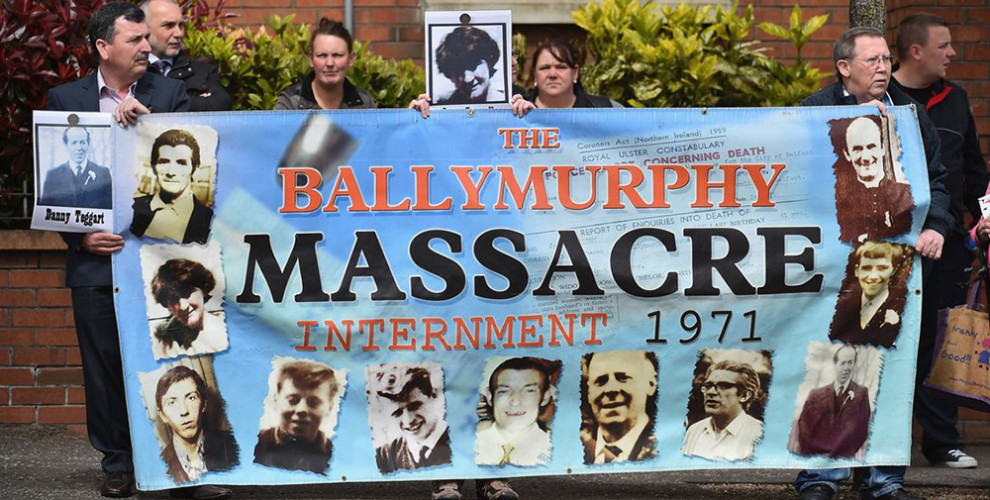Ballymurphy Inquest opens
Families fight for justice in Belfast massacre win inquest.
Families fight for justice in Belfast massacre win inquest.

An inquest into the deaths of eleven civilians killed by British soldiers in Ballymurphy in west Belfast, almost 50 years ago, has opened. The inquest is expected to last up up to six months.
The massacre, in the nationalist borough of Ballymurphy in West Belfast, followed the introduction of internment without trial as the British government struggled to gain control in the Six Counties in August 1971.
The inquest heard the British Prime Minister Ted Heath ordered "military support" for Operation Demetrius, the codename for internment, to quell "widespread civil disorder and rioting across Belfast and Northern Ireland".
Ten deaths took place during five separate shooting incidents over a 36 hour period. The dead included Joan Connolly, a mother of eight shot in the face, and Father Hugh Mullan, a Catholic priest shot while giving the last rites to a wounded man. An eleventh victim died later of a heart attack, apparently after a 'mock execution' by soldiers.
Relatives walked together behind their campaign banner to the Laganside Court Complex to the applause of members of other justice campaigns who were present to lend their support, as well as political representatives and national and international media.
It was "a step closer to the truth", said John Teggart, whose father Daniel was one of those killed. Speaking before the session began, he said: "It's mixed emotions going into court today but the determination of the families to get to the truth has brought us to here."
Lawyer Padraig O'Muirigh, who represents some of the families, added: "Today, 47 years after these families lost their loved ones, 46 years after the original inquest, seven years after the direction for a new inquest, we are finally here. It's a tribute to the adversity and resilience of these brave families, so I want to commend them through all the difficult days. Hopefully this is a new start of a process to find out what happened to their loved ones”.
Over the next few months the court will examine the evidence. Hopes for justice received a cold shower when barrister Sean Doran, representing the Coroner's Service, told families the inquest would be "complicated and difficult".
The original inquest was held into the ten deaths in 1972, but was widely dismissed a whitewash. At the time the British Army claimed those killed were either "members of the IRA" or "caught in the crossfire", claims debunked as military propaganda.